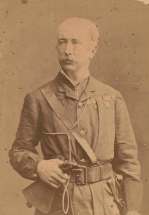Mandatory testing of truckers not needed: premier
Read this article for free:
or
Already have an account? Log in here »
To continue reading, please subscribe:
Monthly Digital Subscription
$1 per week for 24 weeks*
- Enjoy unlimited reading on winnipegfreepress.com
- Read the E-Edition, our digital replica newspaper
- Access News Break, our award-winning app
- Play interactive puzzles
*Billed as $4 plus GST every four weeks. Offer only available to new and qualified returning subscribers. Cancel any time.
Read unlimited articles for free today:
or
Already have an account? Log in here »
Hey there, time traveller!
This article was published 17/06/2020 (1720 days ago), so information in it may no longer be current.
After another three COVID-19 cases linked to Manitoba’s trucking industry, the province is sticking by its policy of not implementing any testing — mandatory or voluntary — at truck stops.
Manitoba Premier Brian Pallister said it wouldn’t make sense, given the “tiny” number of cases linked to trucking.
Don’t extrapolate ‘tiny’ number: Pallister
The three truckers who tested positive for COVID-19 represent one per cent of Manitoba’s cases, but one-tenth of a percentage of the province’s overall population.
Extrapolating from those numbers would suggest truckers are 10 times more likely than the average Manitoban to catch COVID-19 — but epidemiologists caution against inferring from such small numbers, as does Premier Brian Pallister.
“Relative to our numbers, because they are so small, it may seem like a larger percentage. But it is a very, very small number compared to the case numbers and positive-test outcomes that we’re seeing across all jurisdictions, here and around the world,” Pallister said.
— Dylan Robertson
“Going to impose, on a significant industry in our province, a major, mandatory testing regime or any other measure, as a consequence of what is a relatively small number of cases by any standard, would be seen — I think by the industry, and quite rightly — as an excessive intrusion and unnecessary,” Pallister said at a news conference Wednesday.
In a recent eight-day period, three truckers tested positive for COVID-19 after returning to the province. A household contact of one of those three truckers also tested positive.
Another three positive cases reported this weekend have since been linked to one of the three truckers; two are part of the same household as one trucker, while the third is a close contact, the province said.
That means seven out of the eight most recent cases in Manitoba have been linked to trucking.
Manitoba truckers do not have to self-isolate when returning to the province because they are considered essential workers.
As of June 1, when two cases in the trucking industry were confirmed, the province has let truckers who are asymptomatic show up at existing testing sites of their own accord.
As of Tuesday, the province had done 4,700 tests on asymptomatic people, including those visiting hospitals for reasons not related to COVID-19. Manitoba officials could not say how many of those tests were done on truckers.
![]()
Dr. Amir Attaran, an outspoken professor of public health at the University of Ottawa, was baffled Manitoba hasn’t implemented proactive COVID-19 testing at truck stops.
“They are essentially constant travellers, so they always have the risk profile,” Attaran said.
He said public health officials should make it easy for people in target groups to get tested at their worksite, instead of relying on asymptomatic people to go to a test site on their own time.
“It wouldn’t be tough; if you have the human resources, you can pretty much carpet-bomb the truck stops with (testing),” Attaran said.
He noted that poorer countries follow such protocol. He cited the example of South Africa, which tests miners after outbreaks in some mines.
“If South Africa can figure this out, with a fraction of the wealth of Canada, there really is no excuse for Manitoba and other provinces not to be doing that,” Attaran said.
On June 11, Manitoba’s top doctor said the province had considered truck-stop testing but didn’t proceeded. He didn’t explain why it wasn’t pursued.
“The decision was not to set up specialized testing points for the truckers,” Dr. Brent Roussin said last week. “The guidance for testing, to allow asymptomatic truckers to present for testing (is) was what we had decided.”
“It wouldn’t be tough; if you have the human resources, you can pretty much carpet-bomb the truck stops with (testing).” — Dr. Amir Attaran, professor of public health at the University of Ottawa
Terry Shaw, executive director of the Manitoba Trucking Association, said both sides felt it wasn’t necessary.
“Ultimately, it was agreed that Manitoba has dozens of testing facilities up and running; why would we set up even more specific to a certain population, when we’re not seeing the numbers drive the need to set up for that specific number,” Shaw said.
A provincial spokeswoman did not provide clarity on whether officials or the industry raised the issue of truck-stop testing.
“The testing is voluntary and, from an operations perspective, and in consultation with the Manitoba Trucking Association, adequate testing sites are available throughout the province,” said the spokeswoman, who would not be named.
Shaw said his association has promoted the testing to its members as a way to provide peace of mind to truckers and their families.
He stressed that truckers follow numerous safety protocols, and try to limit their exposure while visiting rest facilities and picking up food in the United States, where the coronavirus remains rampant.
Truckers have been hailed for providing food and supplies to Canadians as the pandemic disrupts North American supply chains, though they’ve also been turned away from rest facilities, gas station washrooms, particularly at the start of the pandemic.
— With files from Carol Sanders
dylan.robertson@freepress.mb.ca






